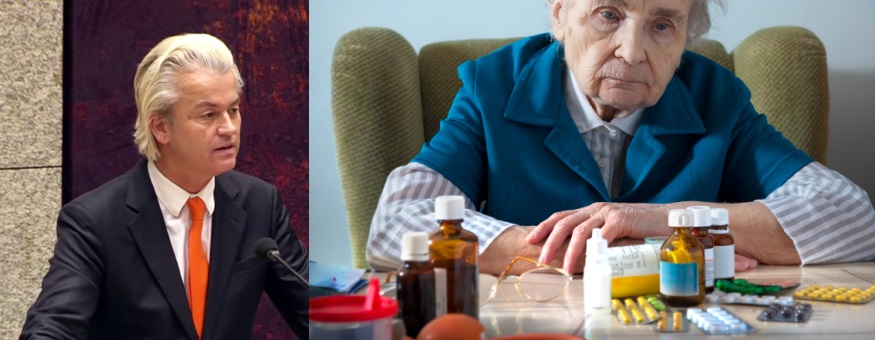The federal administrative court in Leipzig ruled in favor of “the right for a patient who is suffering and incurably ill to decide how and when their life should end” if the patient “can freely express their will and act accordingly”.
Lethal drugs are forbidden in Germany, but the court ruled that there should be exceptions “if, because of their intolerable life situation, they had freely and seriously decided to end their lives” in cases where no palliative-medical alternatives were available.
Germans who want to end their own lives, often traveled to Switzerland where they seek help from the Dignitas euthanasia association.
In a case before the European Court of Human Rights in Strasbourg it was decided in 2012 that the German plaintiff was entitled to a decision in Germany. So the case resumed and finally came to a conclusion on Thursday when the Federal Administrative Court found the refusal of a suicide drug was illegal.
The lawyer of the 74-year-old plaintiff said that the judgment came as a great relief to his client, but the German Foundation for the Protection of Patients said the judgment was “a blow to the cause of suicide prevention in Germany”. Board member Eugen Brysch questioned the definition of “what an intolerable condition of suffering is” and said it remained unresolved.
Suffering is “neither objectively measurable nor legally universally defined,” Brysch said.
In 2015 German parliament voted to ban assisted suicides performed by commercial groups, but family members or close associates were exempted from punishment in assisted suicide cases.
The number of Dutch people killed by medical euthanasia has more than doubled in the 14 years since legislation was changed to permit it, rising 13 per cent in 2013 to 4 188. In 2015, euthanasia accounted for 5 516 deaths, or nearly 4 percent of all deaths in the country, a government agency says.
Geert Wilders has warned against the state acting as an enabler for the death of people who are lonely or depressed.
“We cannot allow people who are needy or lonely to be talked into dying,” he told de Volkskrant, a leading Dutch newspaper. “Combating loneliness — and investing in dignity and focusing on our elderly — is always the best option.”
Christian groups have spoken out against euthanasia. “The myth is that it is purely individual choice, while it always also affects family, the community, health care providers and ultimately society,” Gert-Jan Segers, the leader of a Christian parliamentary party, told de Volkskrant.
Voluntary euthanasia or physician assisted suicide, where a doctor is present while a patient kills themselves, usually by drinking a strong barbiturate potion, has been legal in the Netherlands since 2002.
In 2001, the Netherlands became the first country in the world to legalize euthanasia for patients who were suffering “unbearable pain” with Belgium following their example soon afterwards.
Last year some critics said the Netherlands had gone too far with a proposed law that would allow people who were not suffering from a medical condition to seek assisted suicide if they felt they had “completed life”.
Euthanasia carried out by doctors has only been allowed in three European countries, the Netherlands, Belgium and Luxembourg so far. Using figures for 2012 and based on per capita rates, the Netherlands kills twice as many people by euthanasia as Belgium.













No comments.
By submitting a comment you grant Free West Media a perpetual license to reproduce your words and name/web site in attribution. Inappropriate and irrelevant comments will be removed at an admin’s discretion. Your email is used for verification purposes only, it will never be shared.